World Events
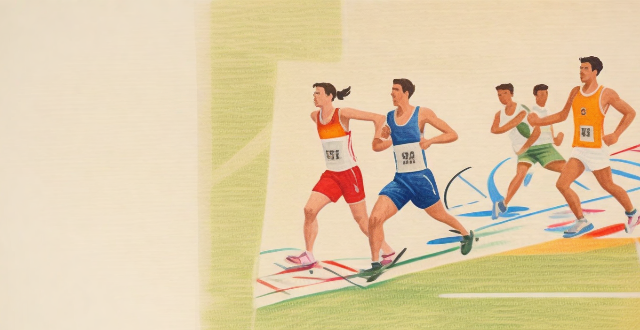
What are some examples of sports events that have promoted international peace ?
This article discusses the role of sports events in promoting international peace and understanding. It highlights the Olympic Games and the FIFA World Cup as two major sporting events that have brought together athletes from around the world to compete in a spirit of friendship, solidarity, and fair play. The article also mentions other events like the Peace and Sport Forum, the United Nations Office on Sport for Development and Peace (UNOSDP), and the Commonwealth Games, which serve as platforms for cultural exchange and diplomacy between participating countries. Overall, the article emphasizes the importance of using sport as a tool for promoting peace and building bridges between nations.

What are some examples of successful disability sports organizations or events around the world ?
Disability sports have been gaining popularity and recognition worldwide, with many organizations and events showcasing the talent and determination of athletes with disabilities. Here are some examples of successful disability sports organizations and events around the world: 1. Paralympic Games: An international multi-sport event for athletes with physical and intellectual disabilities, held immediately after the Olympic Games in the same host city. 2. Special Olympics World Games: A global event for athletes with intellectual disabilities, offering competition in various sports such as swimming, athletics, and basketball. 3. International Wheelchair Basketball Federation (IWBF): The governing body for wheelchair basketball worldwide, organizing international competitions and promoting the development of wheelchair basketball across different regions. 4. Cerebral Palsy Football World Cup: A biennial international football tournament for players with cerebral palsy, providing an opportunity for these athletes to showcase their skills and promote awareness about cerebral palsy. 5. International Blind Sports Association (IBSA): Dedicated to promoting sports for visually impaired athletes, organizing world championships and other events in various sports such as goalball, judo, and swimming. 6. World Deaf Volleyball Championships: An international competition for deaf volleyball players, promoting the development of deaf sports and providing a platform for deaf athletes to showcase their talent and compete at the highest level. 7. World Dwarf Games: A multi-sport event specifically designed for individuals with dwarfism, offering a range of sports such as swimming, track and field, and powerlifting, providing opportunities for athletes with dwarfism to compete and showcase their abilities.
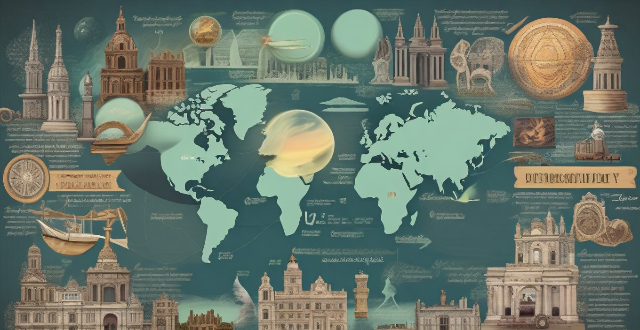
How can I apply what I've learned in history to real-world situations and current events ?
The text discusses the importance of applying historical knowledge to real-world situations and current events. It provides ten ways to apply historical knowledge, including contextualizing current events, analyzing causation, predicting outcomes, informing decision making, promoting critical thinking, enhancing cultural understanding, improving communication skills, developing empathy, informing policy and advocacy, and inspiring creativity and innovation. The conclusion emphasizes that connecting the dots between past and present can help make more informed decisions and work towards a better future.

How do major sporting events, like the Olympics or World Cup, influence sports-related film productions ?
The Influence of Major Sporting Events on Sports-Related Film Productions Major sporting events like the Olympics or World Cup have a significant impact on sports-related film productions. They generate increased interest in sports, provide inspiration for storytelling, offer access to athletes and coaches, and present marketing opportunities. As a result, filmmakers may be more likely to produce sports-related films during or after these events, creating works that capture the drama and excitement of sports while resonating with audiences worldwide.
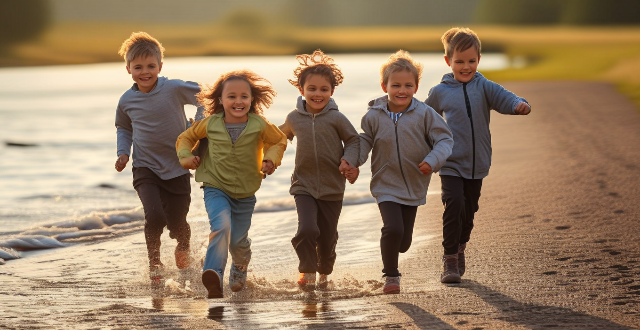
In what ways can athletes serve as ambassadors for their countries in international relations ?
Athletes have the power to unite people from different countries and cultures through their performances and achievements. They can serve as ambassadors for their countries in international relations by promoting peace, understanding, and goodwill. Some ways athletes can fulfill this role include participating in international competitions, organizing charity events, learning about other cultures, teaching sports to children abroad, speaking out against injustice, and supporting environmental sustainability. By using their influence and platform, athletes can make a positive impact on the world and inspire others to do the same.
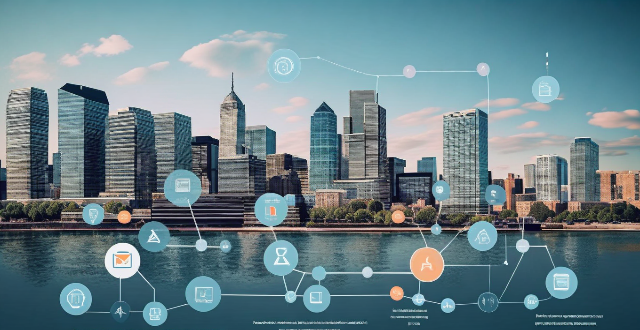
How can networking events help me enhance my personal image ?
Attending networking events can significantly enhance your personal image by establishing industry presence, expanding professional circles, offering learning opportunities, showcasing expertise, and building a positive reputation. To make the most out of these events, dress appropriately, be prepared with an elevator pitch, practice active listening, follow up with connections, and contribute value whenever possible. These strategies not only improve your professional image but also open doors to new opportunities and collaborations.

What are some examples of recent extreme weather events ?
This article discusses recent examples of extreme weather events that have caused significant damage to human life, property, and the environment. These include Hurricane Ida (2021), Australian Bushfires (2019-2020), California Wildfires (2020), European Heatwave (2019), Japanese Typhoon Hagibis (2019), and Indian Cyclone Amphan (2020). The article concludes by emphasizing the need for individuals, communities, and governments to take action to mitigate the effects of these events and adapt to changing weather patterns.
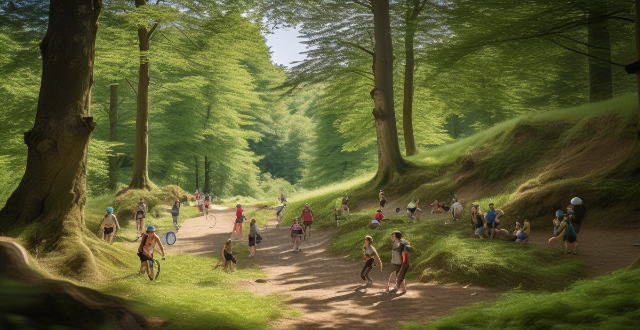
Can sports events promote peace between nations ?
Sports events can promote peace between nations by breaking down barriers, fostering cultural exchange, and providing a platform for diplomatic engagement. Historical and modern-day examples show the potential of sports diplomacy, but challenges such as political interference and commercialization must be considered. Overall, sports have the power to bring people together and promote understanding, making them a valuable tool for promoting peace.

How can women overcome gender bias in the startup world ?
Gender bias is a pervasive issue in many industries, including the startup world. Women face unique challenges when it comes to funding, networking, and building their businesses. However, there are strategies that women can employ to overcome these obstacles and thrive in the startup world. Here are some tips: 1\. Build a Strong Network: Networking is crucial for any entrepreneur, but it's especially important for women who may not have as many natural connections in the industry. Attend industry events, join professional organizations, and connect with other entrepreneurs on social media. Make sure to diversify your network by seeking out people from different backgrounds and perspectives. 2\. Develop Your Skills: Take courses or attend workshops to develop your skills in areas such as finance, marketing, and management. This will not only make you a more well-rounded entrepreneur but also demonstrate your commitment to learning and growing. 3\. Be Confident and Assertive: Women are often socialized to be polite and deferential, which can sometimes hold them back in business settings. Practice being confident and assertive in meetings and negotiations. Remember that you deserve to be taken seriously and that your ideas and opinions are valuable. 4\. Seek Out Mentors and Advisors: Find mentors or advisors who can offer guidance and support as you navigate the startup world. Look for people who have experience in your industry and who share your values and goals. 5\. Leverage Your Strengths: Women often bring unique strengths to the table, such as empathy, collaboration, and creativity. Emphasize these qualities in your pitches and marketing materials, and don't be afraid to highlight how they set you apart from your competitors. 6\. Stay Persistent: Starting a business is hard work, and there will inevitably be setbacks along the way. Stay persistent and focused on your goals, even when faced with rejection or failure. Remember that every challenge is an opportunity to learn and grow. 7\. Advocate for Yourself and Others: Speak up about issues of gender bias and inequality whenever you see them. Use your platform to advocate for change within your industry and support other women who are facing similar challenges. By working together, we can create a more equitable and inclusive startup world for all entrepreneurs.
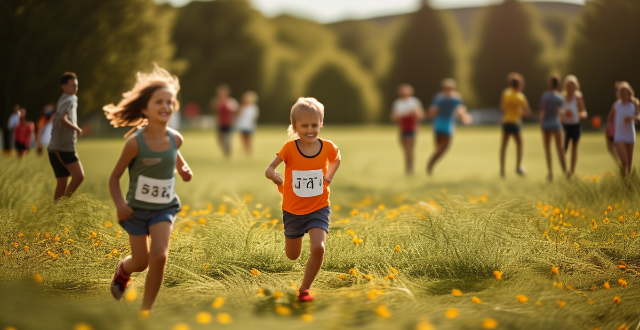
How do major sporting events like the Olympics impact international relations ?
Major sporting events, such as the Olympics, have a significant impact on international relations. These events promote diplomatic ties between nations, enhance cultural exchange, provide economic benefits, showcase national pride, and encourage peace and unity among countries. By bringing together athletes from different countries, cultures, and backgrounds, these events create a platform for dialogue and understanding, fostering stronger relationships and promoting a more harmonious world.
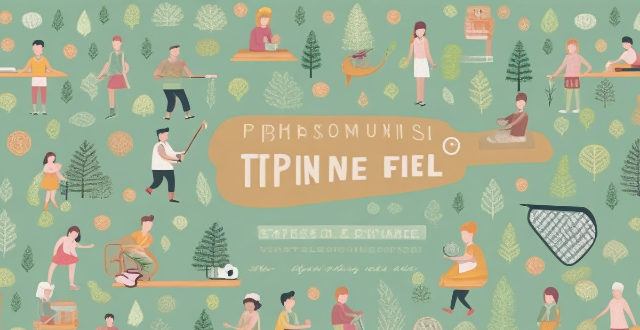
Can you identify any international sports events that have taken significant steps towards achieving gender parity among competitors ?
The text discusses the growing emphasis on achieving gender parity in sports, highlighting significant steps taken by various international sports events towards this goal. It mentions the Olympics' strides in ensuring equal participation and medal distribution for men and women, FIFA's establishment of the Women's World Cup and increased investment in women's football, tennis Grand Slams offering equal prize money and television coverage for both genders, and the Rugby World Cup's efforts to promote women's rugby and implement gender equality policies. The text concludes that these initiatives demonstrate a commitment to creating a more equitable playing field for all athletes, regardless of gender, acknowledging that there is still work to be done.

What are the benefits and drawbacks of virtual fan support events compared to in-person events ?
Virtual fan support events provide global accessibility, cost-Virtual fan support events provide global accessibility, cost- benefits but face challenges like limited cost-effectiveness, and safety benefits but face challenges like limited personal interaction and technical issues. Finding a balance between virtual and in-person events is crucial for meaningful connections.
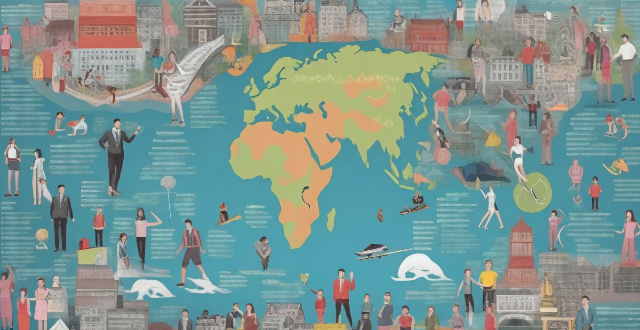
How has the integration of sports and multiculturalism influenced global athletic events ?
The article discusses how sports and multiculturalism have influenced global athletic events, making them more diverse, inclusive, and engaging. It highlights the increased diversity and inclusivity, cultural exchange and celebration, promotion of gender equality, addressing social issues, and economic benefits for host countries. The article concludes by stating that these events continue to evolve and adapt to an increasingly interconnected world.
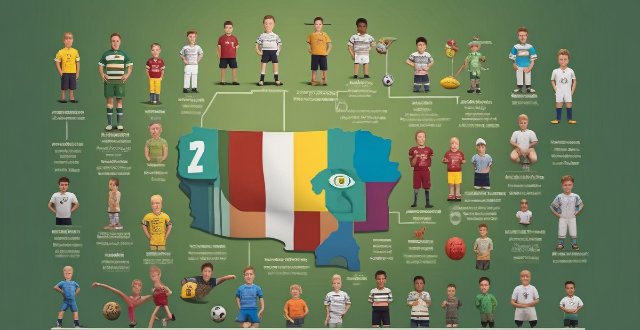
Which country has won the most FIFA World Cup titles ?
The country that has won the most FIFA World Cup titles is Brazil, with a total of five (5) titles. The Brazilian national football team is widely considered one of the most successful in the history of the sport. Other countries that have achieved significant success in the World Cup include Germany, Italy, Argentina, and Uruguay.

What are the main causes of extreme weather events ?
Extreme weather events, such as hurricanes, tornadoes, floods, and droughts, are caused by a combination of natural climate variability, human activities, and changes in the Earth's climate system. Natural climate variability includes phenomena like El Niño and La Niña, which can cause extreme weather conditions around the world. Human activities, such as greenhouse gas emissions, land use changes, and pollution, also play a significant role in causing extreme weather events. Changes in the Earth's climate system, such as sea level rise, ocean acidification, and changes in atmospheric circulation patterns, can also contribute to extreme weather events. Addressing both the underlying causes and implementing adaptation strategies is important to mitigate the impacts of these events.

How do fan support events differ between music genres or cultures ?
The text discusses the variations in fan support events across different music genres and cultures. It highlights how these events differ in terms of concert tours, meet and greets, signings, fan clubs, and online communities. The examples provided illustrate the unique traditions and practices associated with each genre or culture, showing how artists connect with their audiences in diverse ways.
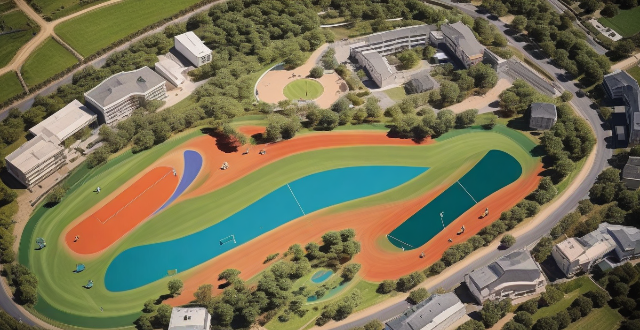
How do sports events like the Olympics contribute to global integration and peacebuilding efforts ?
The role of sports events in global integration and peacebuilding is significant. These events, like the Olympics, serve as platforms for cultural exchange, enhancing international relations, increasing global awareness, promoting peace efforts, and contributing to economic impact and development. Through friendly competition and camaraderie, these events foster a sense of unity and mutual understanding that transcends cultural, political, and economic boundaries. They provide a unique opportunity for the world to come together in a spirit of friendly competition, setting aside differences to celebrate the human spirit of perseverance and achievement. By fostering an environment of mutual respect and understanding, sports events play a crucial role in building a more integrated and peaceful global community.
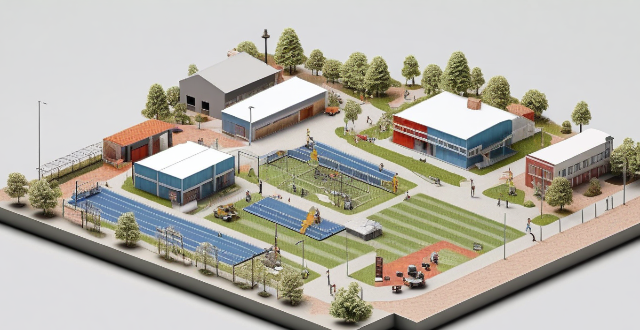
How do sports events promote interfaith understanding and cooperation ?
Sporting events serve as a platform for promoting interfaith understanding and cooperation by breaking down barriers, encouraging dialogue, building partnerships, and promoting peace. Through shared passion for sports, principles of sportsmanship, mixed teams, celebration of diversity, joint community projects, interfaith leagues, peace through play initiatives, and role models, sports events can contribute to a more harmonious society where interfaith cooperation is the norm.

What are some examples of successful sports charity events ?
Successful sports charity events like the Nike Foundation's "Girl Effect" Marathon, The Komen Race for the Cure, and The Wounded Warrior Project's Carry Forward 5K have raised millions of dollars for various causes by combining the excitement of sports with philanthropy. These events engage participants in physical activity, raise funds and awareness for important causes, and create a sense of community among participants and supporters.

Can you recommend some breathtaking yet less crowded hiking trails around the world ?
This guide recommends breathtaking yet less crowded hiking trails around the world, from the Sierra Nevada in California to the Himalayas in Nepal. It offers highlights and crowd avoidance tips for each trail.
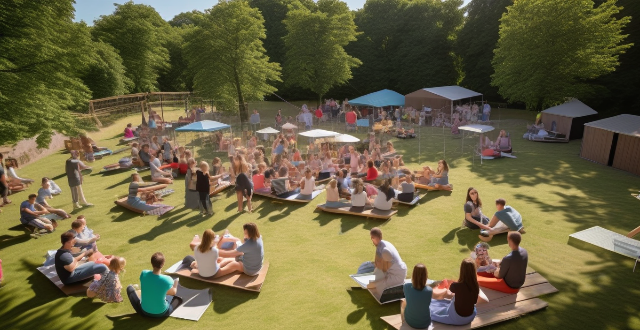
How do sports events promote social interaction and community building ?
Sports events play a significant role in promoting social interaction and community building. They bring people together, foster a sense of belonging, and create opportunities for individuals to connect with one another. This is achieved through encouraging participation, building community spirit, providing entertainment and recreation, facilitating networking opportunities, and enhancing diversity and inclusion. By bringing people together around a shared passion for sports, these events create lasting connections and positive experiences that extend far beyond the playing field.

How do major sporting events, like the Olympics, affect fashion trends ?
Major sporting events have a significant impact on fashion trends, including the attire of athletes, national dresses, opening ceremonies, merchandise and souvenirs, and marketing campaigns. Designers take inspiration from these events to create clothing that is both fashionable and practical, leading to the emergence of sportswear as a fashion trend. Major sporting events also showcase traditional garments and cultural heritage, increasing interest in ethnic and traditional clothing among consumers. Additionally, elaborate costumes and performances during opening ceremonies inspire high-end fashion collections. Merchandise and souvenirs generated by major sporting events have a significant impact on streetwear fashion trends, while marketing campaigns promote products inspired by the event's theme or imagery. Overall, major sporting events continue to shape our understanding of what is fashionable and desirable in today's society.

What is the role of the World Health Organization (WHO) in promoting global health ?
The World Health Organization (WHO) plays a crucialThe World Health Organization (WHO) plays a crucial by providing leadership, setting norm WHO's work is focused on improving health outcomes worldwide through various activities such as convening stakeholders, establishing international standards for health, generating scientific knowledge to inform policy decisions, providing technical support to countries, and monitoring global health trends.

How can governments use sports events to promote public health awareness ?
Governments can use sports events to promote public health awareness by partnering with health organizations, integrating health messages into event branding, encouraging healthy lifestyle habits among participants, hosting health-related activities, and leveraging social media. These strategies help engage people in discussions about their well-being and foster a culture of wellness.

How have historical events impacted the acceptance and participation of women in various sports throughout time ?
The text discusses how historical events and societal norms have influenced women's participation in sports throughout history. In ancient civilizations like Greece and Rome, women were generally excluded from athletic competitions due to cultural beliefs and expectations about their roles. During the Middle Ages, their involvement remained limited, with some exceptions for practical purposes. The Industrial Revolution brought slight progress as leisure time increased, but gender stereotypes still hindered women's participation. Pioneering figures in the late 19th and early 20th centuries began promoting women's sports, leading to the inclusion of women's events in the Olympics. After World War II, there was a push for gender equality, including in sports, resulting in increased opportunities for female athletes. Today, while women participate in a wider range of sports than ever before, challenges such as unequal treatment persist, requiring continued advocacy for gender equity in sports.

How can sports events be used to raise funds for charity ?
**Raising Funds for Charity through Sports Events: A Guide to Integrating Fundraising into Sports Events** **Introduction: The Power of Sports in Fundraising** - Sports events are a powerful tool for raising funds and awareness for charitable causes. **Strategies for Integrating Fundraising into Sports Events** 1. **Ticket Sales and Donations:** Charge admission fees and place donation boxes at event entrances and exits. 2. **Corporate Sponsorships:** Partner with local businesses and create sponsor challenges within the event. 3. **Merchandise Sales:** Sell branded merchandise and auction off unique items during the event. 4. **Peer-to-Peer Fundraising:** Encourage participants to raise money through their personal networks and leverage online platforms. **Implementation Steps for Successful Fundraising** 1. **Clear Objectives and Communication:** Set clear goals and keep donors informed about how their contributions will be used. 2. **Event Promotion and Marketing:** Utilize social media, engage with local media outlets, and promote the event and its charitable cause. 3. **Streamlined Operations:** Simplify the registration process and ensure transparent financial management. **Conclusion: The Lasting Impact of Sports Fundraising** - Use the event as a springboard for ongoing fundraising efforts and share stories of how the funds raised have made a difference.

How can extreme weather events caused by climate change affect the scheduling of sporting events ?
The text discusses the impact of extreme weather events caused by climate change on the scheduling of sporting events. It highlights how these events can lead to cancellations or postponements, changes in venue conditions, travel disruptions, and reduced fan attendance. The text emphasizes the need for sports organizations and venues to develop strategies for dealing with these challenges to ensure the safety and enjoyment of all those involved in sporting events.

What are the must-visit family-friendly attractions around the world ?
Traveling with family is an amazing experience that creates lasting memories. Here are some of the must-visit family-friendly attractions around the world: 1. Disneyland Paris, France 2. Universal Studios Hollywood, USA 3. Tokyo DisneySea, Japan 4. Legoland Deutschland, Germany 5. LEGOLAND Florida Resort, USA 6. Efteling, Netherlands

How do family-friendly events help in building a strong relationship between parents and children ?
Family-friendly events play a crucial role in fostering strong relationships between parents and children. These events provide opportunities for families to spend quality time together, engage in fun activities, and create lasting memories. In this article, we will discuss how family-friendly events can help build a strong relationship between parents and children. One of the primary benefits of family-friendly events is that they enhance communication between parents and children. During these events, families have the chance to talk about their interests, share experiences, and learn new things together. This open communication helps to build trust and understanding within the family unit. Family-friendly events offer a structured environment where parents and children can spend quality time together without distractions. This dedicated time allows families to reconnect and strengthen their bonds. Family-friendly events often feature a variety of activities that cater to different age groups and interests. This exposure to new experiences can help children develop new skills and hobbies, while also allowing parents to discover hidden talents or interests within themselves. The memories created during family-friendly events are invaluable in building strong relationships between parents and children. These experiences become cherished moments that families look back on fondly, reinforcing the importance of spending time together. Family-friendly events also offer opportunities for parents and children to develop empathy and understanding towards one another. By observing each other's reactions and emotions during these events, families can gain insights into each other's perspectives and feelings.